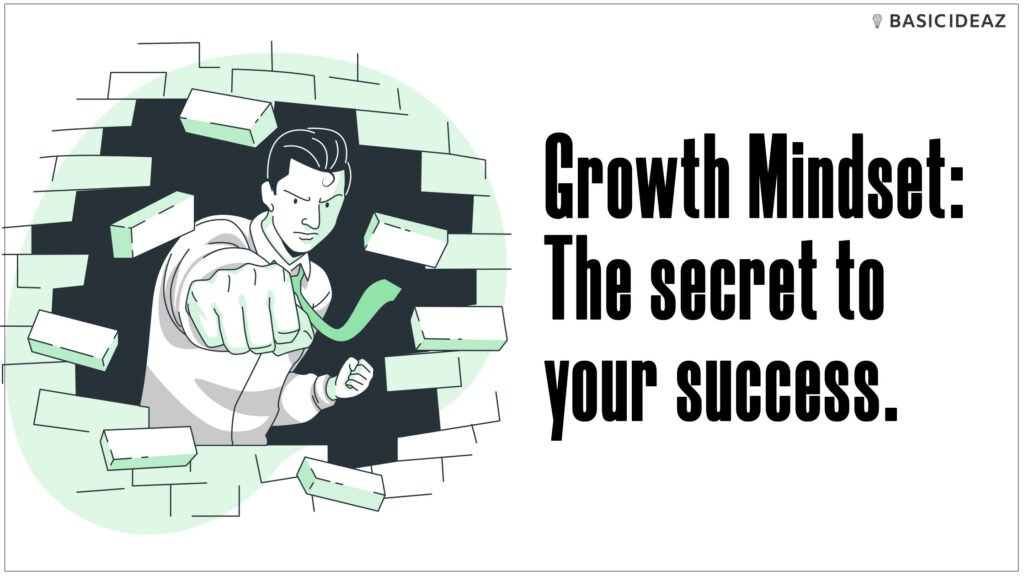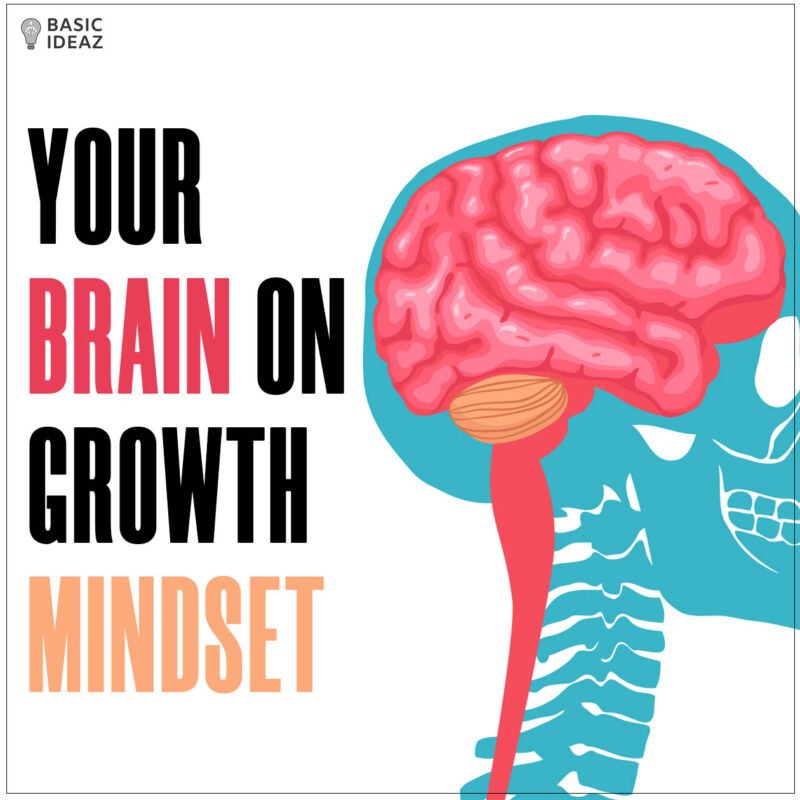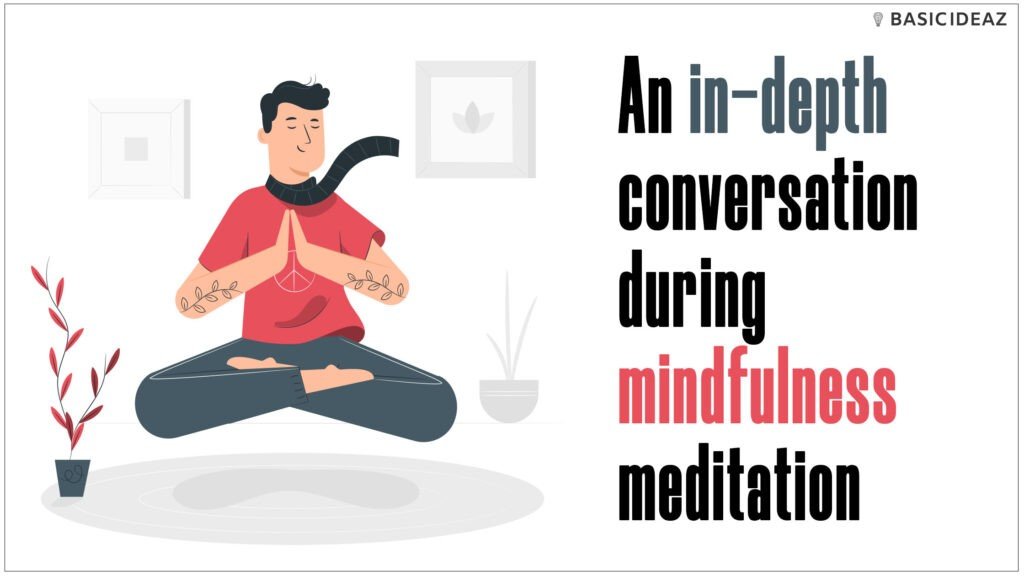Growth Mindset: The secret to your success

There are two types of mindset:
- Fixed mindset &
- Growth mindset.
1. Fixed mindset
People having a fixed mindset believe that their talents and abilities are fixed since birth and there is nothing they can do that will change these qualities.
They believe if they have to work hard for something then they don’t deserve it, because in a fixed mindset either you have it in you or don’t.
They constantly look for validation for their talents.
Get Quality Self Improvement Articles Every Week, No Spam, No Ads.
Thank you!
You are added to the community of Basicideaz.
A personal example:
After my board exams, I decided to appear in one of the most challenging entrance exams in India, (CAT) common admission test for MBA in IIM. After one try I decided to quit because I believed I couldn’t do it and I don’t have it in me to get admission in one of the top institutes in India.
I believed, IIMs are for those who have inborn talents, who have scored perfect since childhood. I am not one of them. The test results are the confirmation that I don’t belong to IIM.
Now I wish if somebody was there to tell me about the growth mindset then.
2. Growth Mindset
People having a growth mindset believe that true human potential is unknown and by hard work and perseverance a person can reach unimaginable heights in life. It is impossible to predict what a person can achieve with years of training and passion.
These people don’t try to prove their talents to others, rather they take each failure as an opportunity for growth.
The passion for improving yourself, even when things are not going well, is a strong sign of a growth mindset.
They are not focused on not making mistakes, rather learning from their mistakes.
Another personal example:
I was never good at singing and I believe, I still don’t.
In the fifth standard, I was performing a song in our school function and I thought I was doing well. I didn’t.
The musicians stopped playing during half of the song and told me to leave the stage. I know it sounds savage, and the truth is it was.
I felt bad only for the day and didn’t take it personally because I was only too little to understand what had happened to me.
Now, after all these years I love remembering what had happened.
Anyway, moving my story forward, I had a habit of singing unintentionally during free time, during ongoing classes, while walking or lying down, or in some cases during sleeping.
My school friend used to tell me, ‘you don’t sing good but you keep singing all the time, I mean all the f**king time. What the hell is wrong with you?’
After moving out of school I did the same in college. After college, I did the same in the office when I was working for an MNC.
I still do the same when I am writing this article.
People still say things to me, but the only change now is their behavior, they say, ‘your voice is so good, why don’t you try Indian Idol or start a youtube channel. You sing really well.’
I know I am still a bad singer, but I also know that I improved a lot and a lot more could have been improved if I did my singing practice with focus and attention.
I just did it in a casual way without thinking about any outcome.
The characteristics of these two mindsets:
1. Challenges
The fixed mindset people see challenges as a threat to their intelligence and talents. Remember, if they have to work hard for something then they probably don’t deserve it. If they already have the skills or talents, they could have done it easily.
Why work hard for something, that could make you feel miserable and revealing that you don’t have it in you. It is better to stay away from it.
On the other hand, growth mindset people take challenges as an opportunity to grow, a way to increase their capacity and skills. They take challenges as a feedback mechanism to know where they stand and try to improve the current self.
In the book ‘Mindset: The new psychology of success’ Carol S.Dweck mentioned her study of two groups of school students.
One group belongs to the fixed mindset and the other to the growth mindset.
The students were given a set of ten fairly difficult problems to solve. Both the group did well on these questions and the group with the fixed mindset was praised for their talents.
On the other hand, the group with the growth mindset was praised for the hard work and effort.
After this, the two groups were given a choice to select challenging new tasks from which they could learn from.
The group with the fixed mindset rejected it because they don’t want new challenges that could find flaws in their talents. They already proved it once how good they are, so, why they have to feel bad by questioning their fixed talents.
2. Arrogance
People with a fixed mindset have this notion that they are superiors to others because they are better than others. They are better at studies, they are better at tennis or they are better at painting.
They don’t have to work hard like all the others and just by studying the night before the exam they can secure a pretty good score compared to the one who studied the whole year.
They say, “Just imagine what will happen if I study for a month or the year.”
The fixed mindset CEO of a company will say, ‘It is only because of me that this company is earning profit. Without me, I can’t think of a future for it.”
The fixed mindset people don’t have to listen to others, why should they? They already know what they have to know and what these other inferior and less talented people are going to teach them?
They block their mind from further learning.
3. Enjoyment
In the above example, the two groups were given further but difficult problems to solve. Both the groups didn’t do well with this set of problems.
The fixed mindset group found out that they were not that talented as they thought. After the first set of problems, the fixed mindset group loved the problems but now they replied, these problems are not fun anymore.
How could it be when these problems loom as a threat to your fixed talents.
On the other hand, the growth mindset group took these difficult questions as a learning opportunity. For them, more difficulty means more effort. If they still can’t solve it, they can learn a lot from it.
This group enjoyed while trying to solve the problem, while the other group didn’t because the burden of talent was killing their enjoyment.
4. Self-esteem
In the growth mindset, people don’t reprimand themselves for not able to do something. They don’t need validation and proving to others. If they can’t do something, they put more effort into learning it because they believe the true potential of humans is unknown.
The people having a growth mindset have self-respect because they work hard for their goals. They have higher consciousness for living.
These people also have higher confidence in themselves because they believe in effort rather than ability and also because they are less concerned about the outcome rather than the process.
When a person has self-respect and confidence in oneself to complete a task despite the adverse situations, he has higher self-esteem than others.
On the contrary, The fixed mindset person is more focused on the outcome because he has to prove his talents to others. This creates fear and uncertainty in himself.
Where is fear, there is low trust in his potential. He also loses respect for himself once he fails to produce results.
When a person lacks confidence in his ability and self-respect, he suffers from low self-esteem.
5. Leadership
Fixed mindset leader
The fixed mindset leader sets out to prove to others that they are the hero of the organization. They are leaders because they have talents that others don’t have. They think as the ‘I’ in the organization and everything that happens in it is about them and them only.
If companies earn millions in profit, then it is because of them.
In the same book, ‘Mindset: The new psychology of success’ Carol S.Dweck showed multiple examples of fixed mindset leaders.
Example
One of these leaders was Iacocca, an American automobile executive. He achieved big success at Ford and dreamt of becoming the CEO of the company. But, Henry Ford had other plans in mind.
Shocked and raged Iacocca was eventually forced out of the company by Henry Ford. The fixed mindset Iacocca never thought he would be thrown out of the company because he is superior to others, according to him.
Did Henry Ford find any flaws in him?
To prove that Henry Ford made a mistake, he became the CEO of Chrysler motors, the once-thriving ford rival that was losing all its ground in the market.
He started with great energy as the CEO and after hiring the right people and bringing new models to the market the company did grow quickly.
This led Iacocca to write his autobiography and in it, he declared, “Today, I am a hero.”
Though, the victory of Chrysler motors was short-lived. Soon the company was in trouble again.
The need to prove that Iacocca was the smarter, the superior, and luckier than any other blinded his real responsibilities as a leader.
Growth Mindset leader
A growth mindset leader always focuses on the ‘we’ of the organization and he believes he has to keep improving himself to cope with the challenges of the company. There is always something to learn and grow.
They don’t blame others for their mistakes or find excuses that can evade their responsibilities.
These growth mindset leaders believe in human potential and the development of both their own and the people in the company.
These leaders focused on the journey rather than the outcome of their activities.
Get Quality Self Improvement Articles Every Week, No Spam, No Ads.
Thank you!
You are added to the community of Basicideaz.
The neuroscience behind the growth mindset.
So, why does the growth mindset work? Is it scientifically true that human talents are expandable and not fixed? Is it true that by repetition, hard work, and perseverance you can reach unimaginable heights in life?
Let’s have a closer look at our brains.

Our brain is not a fixed machine, but a changeable one. It keeps growing, reorganizing through our lifetime.
There are billions of pathways in our brain, which are responsible for our emotions, actions, etc. Through these pathways our brain chemicals or known as neurotransmitters travel.
Some pathways are stronger than others, while some are weaker.
The stronger the pathways are for a particular activity, the stronger our habits are for that activity.
It is used to believe that these pathways which are made of neurons are fixed from birth.
In the recent advancement in neuroscience, it is discovered that our brain keeps changing throughout our lifetime.
The brain that changes itself is highly plastic. Do you ever hear this term, ‘Neurons that fire together, wire together.’?
Whenever we perform an activity, the neurons or the pathway related to that activity get stronger or in other words, we become better at it.
If you are not good at using a knife then by practicing every day, you can develop better knife skills.
If you are not good at writing or playing guitar, you can develop your writing by reading and writing every day and practicing your guitar sessions every day.
Again, if you are not good at relationships, you can become better by investing time in improving relationship skills every day.
The keyword is ‘everyday’.
Practicing everyday does two things.
- Improve your skill in that particular area.
- You start loving the activity, despite not having any interest in the beginning.
In the book, Habits of a Happy Brain by Loretta Graziano Breuning mentioned that, if you want to develop an interest in a particular area, you have to repeat the activity for 45 days.
For example, playing guitar is cool but you cannot play it and practice it everyday because you don’t have that passion or interest in it.
If you practice 10 minutes of guitar everyday for 45 days, you find a new love for it.
You will not go crazy for it after 45 days, but you will start thinking about it, you will feel happy and the practicing session will greatly improve.
On the other hand. If you stop practicing a particular activity for some time, you will lose skills that you have developed with daily practices.
The neurons or the pathways that you have created will start to shrink and the paths will get weaker.
They will never die because once you learn something, you cannot unlearn it.
Just imagine, if you know how to swim but because of not practicing you have to relearn it every season from the scratch. How irritating and boring that would be!
Though, a break from practicing will certainly affect your skill level.
You are good at walking because you walk everyday, but the astronauts who come back to earth after a month or two find it difficult to balance them on the ground.
What about the God gifted people?
There are certainly some people who are better at something from an early age. People who are good at mathematics, people who are better at singing, or people who are better at leadership than the averages.
Though, despite having the early talents these people fail to shine in the real world because of their fixed mindset.
According to them, their talent is fixed and they need constant validation for their skills. They need to prove to everyone that they are superior, special, and lucky.
The fear of falling doesn’t help them in pursuing new and challenging activities which could be a threat to their confidence.
On the other hand, gifted people with a growth mindset believe that even geniuses have to work hard for their achievements. According to them, what is so great about having a gift?
It is the effort that counts, it is the effort that ignites your talent and takes you to heights that you couldn’t have dreamed of.
My mother kept telling everyone that my big brother has a higher IQ than others, that’s what mothers do, and if he did study for his exams he would secure good results.
The only problem was my brother never studied.
Though, after failing twice in the same standard he did put effort and secured good results in the end.
Without effort, there would have been no Usain bolt or Sachin Tendulkar, despite their god gifted talent for their sports.
Conclusion
Growth mindset is believing that you can grow everyday and every moment of your life. Your skills are not fixed, your personality, your passion, and your talents are not fixed.
Everything can be improved and everything can be shattered.
It is upto you who should decide what path you are going to take.
Analyze yourself and identify the shortcomings in your character that is holding you back.
Is it a particular skill that is stopping you, is it your self-concept that is working as a hindrance in your progress of life, or is your unconscious living.
Whatever it is, you can always improve and keep moving forward in your life.
Best
Ahbab
This article is based on the book “Mindset: The new psychology of success” by Carol S.Dweck.
If you want to know further about growth and fixed mindset, you can check it below here:






